Celebrating Angel's 20th Anniversary with Seven of Its Best Episodes
-
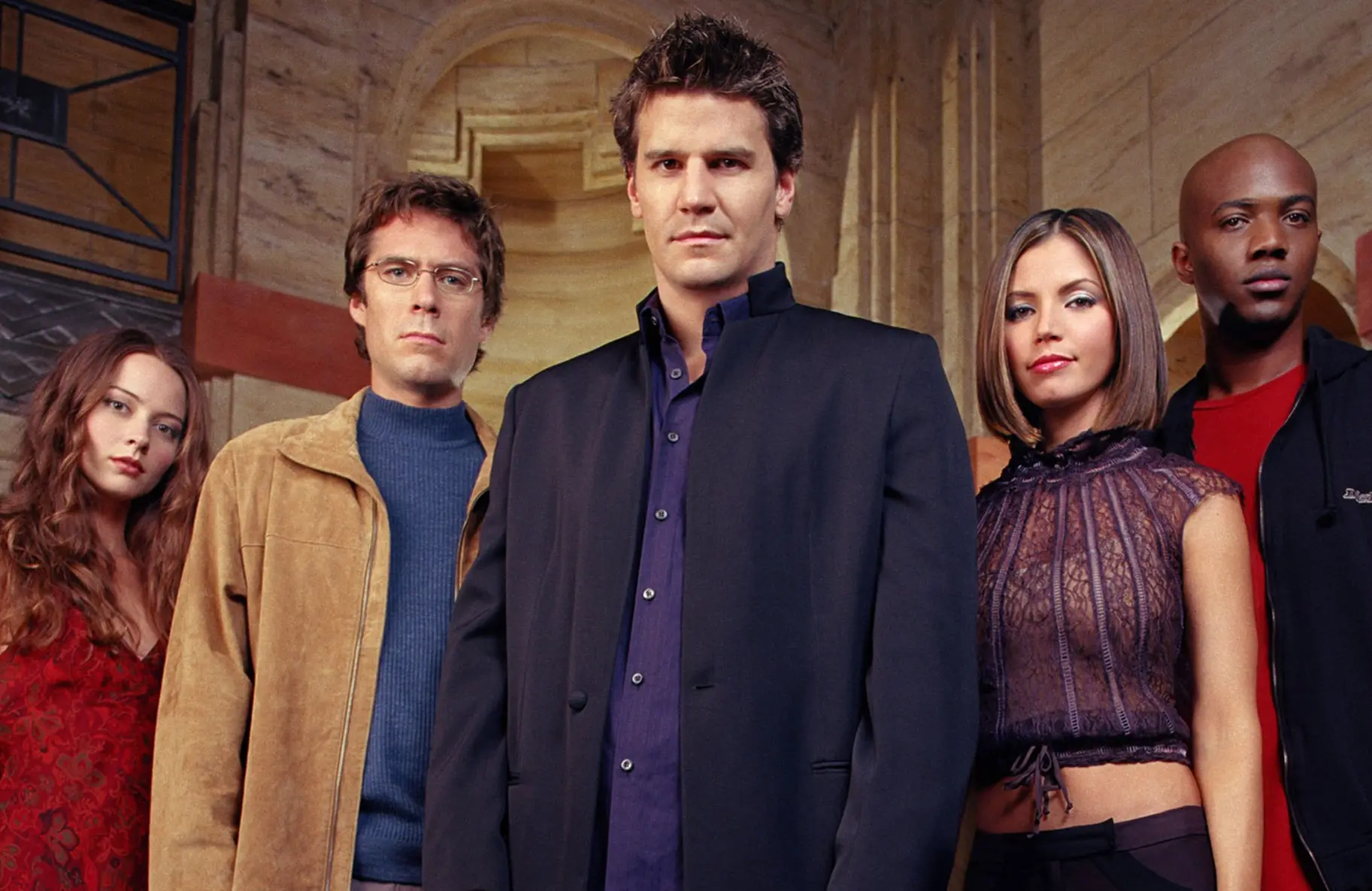 Amy Acker, Alexis Denisof, David Boreanaz, Charisma Carpenter and J. August Richards in a promotional photo for Angel's third season. (20th Century Fox Television)
Amy Acker, Alexis Denisof, David Boreanaz, Charisma Carpenter and J. August Richards in a promotional photo for Angel's third season. (20th Century Fox Television)October 5th marks the 20th anniversary of the Angel pilot's premiere, and while as pilot episodes go, "City Of…" isn't nearly as strong as Buffy the Vampire Slayer's "Welcome to the Hellmouth," the spin-off would soon find its footing and stand on its own, independent of Buffy and her Scoobies.
Angel really started to shine in Season 2, when the showrunners realized it was a serialized ensemble show and not just Law & Order with demons. It was at this point that viewers saw the true rise of Charisma Carpenter's perfectly nuanced portrayal of former high-school queen bee Cordelia Chase. While David Boreanaz's Angel seemed to be constantly wavering between sad loner and grumpy leader, Cordelia went from reluctantly helpful mean girl to genuine full-fledged hero (albeit one who might still drag you for those ugly shoes). Cordelia's emergence paved the way for Angel to become a true ensemble, and for Angel Investigations to become a family — one that lived and died with eachother's every triumph and betrayal. From Alexis Denisof's Wesley to Amy Acker's Fred to J. August Richards' Gunn, they all brought something to the show.
Angel also pulled off something not many shows could do: in its fifth and final season, it executed a soft-reboot, adding a post-Buffy James Marsters to the main cast as Spike. He blended in perfectly, creating a whole new level to his antagonistic dynamic with Angel . By the series finale, most of the cast had been killed off or was on their way to death — Angel was never about happy endings. But the show did what a lot of genre shows couldn't: it made a spin-off nearly as interesting as the show it came from, with an great cast of characters who each got their own time to shine.
So, in honor of Angel's 20th anniversary, we've picked out seven great episodes from the series — each one chosen to showcase one of the show's primary characters:
Charles Gunn (J. August Richards)
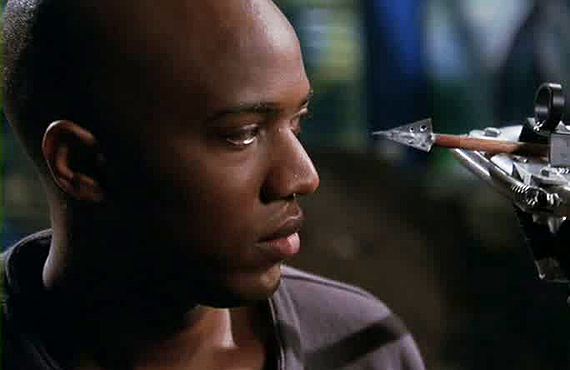
"That Old Gang of Mine" (Season 3, episode 3): One thing Angel did better than Buffy was making the demon/human dichotomy less black-and-white. When Lorne's demon karaoke bar, Caritas, was stormed by old Gunn's old gang in Season 3, Gunn had to decide where he stood: would he choose his old life, crusading against always-evil demons, or his new partnerships at Angel Investigations, where vampires could be heroes and demons could be friendly cocktail-slingers. Gunn, of course, ultimately stood with the Angel Investigations fam — but the episode showed us how much Gunn struggled with his hatred of demons. The metaphor might sound heavy handed, but it's done really well in the episode.
Wesley Wyndam-Pryce (Alexis Denisof)
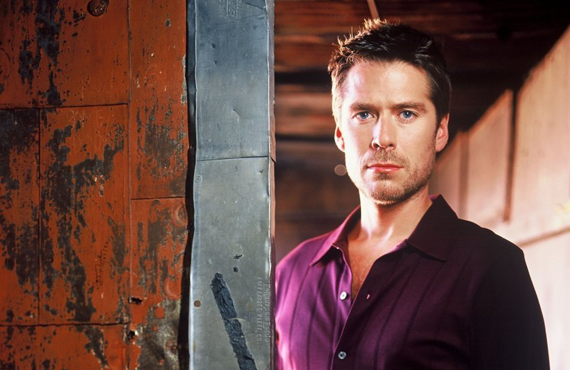
"Lineage" (Season 5, episode 7): We'd gotten hints of just how awful Wesley's Watcher father was in earlier episodes, but in this one we (kinda sorta) get to see it on screen. By this point in the show, Wesley had become the ass-kicking demon hunter we'd grown to love — but this episode showcases not only his daddy issues and vulnerability, but his love for Amy Acker's Fred. After he shoots and kills his father to save Fred, it turns out it was only a cyborg impersonating his father. If you think this one is sad, just remember both Wesley and Fred die incredibly painful deaths a scant handful of episodes after this one.
Lorne (Andy Hallett)
"Through the Looking Glass" (Season 2, episode 21): Season 2 had a very strange final arc that was pivotal to taking the gang completely out of this dimension so they would be unavailable to help Buffy fight hellgod Glory at the end of Buffy Season 5. But the offworld arc itself is some of the most fun the show ever allows the characters to have. Cordelia becomes the queen of Pylea, the gang meets the fan-favorite Fred, and Lorne confronts his medieval-esque demon family. Lorne's story is near explicitly a queer one. He's a dapper, smooth-talking cocktail-drinking singer, while his family is literally a bunch of demons dressed in potato sacks who not only don't understand him but actively hate him. This episode features a cameo from series creator Joss Whedon as Lorne's cousin Numfar (check out those dance moves), and ends with Lorne being beheaded in one of the show's true shocker moments. (Don't fret, he survives!)
Fred (Amy Acker)
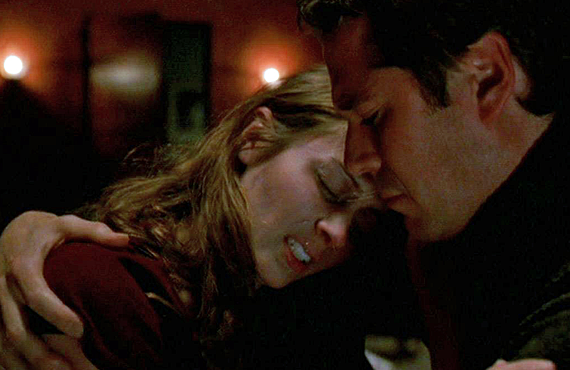
"A Hole in the World" (Season 5, episode 15): Amy Acker's beloved Fred was the absolute heart of Angel, while also being the brains. She was not only loved by fans, but also by the entire Angel Investigations team. So when she was plagued by an unknown ancient virus, you might think "Oh she'll survive this," but you silly, silly fool! Watching the entire gang race to save Fred only to fail is absolutely heartbreaking. If Fred singing, "You are my sunshine" on the steps of Wolfram & Hart only to have Lorne turn around in terror before she spits up blood and collapses isn't enough to destroy you emotionally, just wait until the very end when Fred is begging for her life, moments before she freakin' DIES.
Spike (James Marsters)
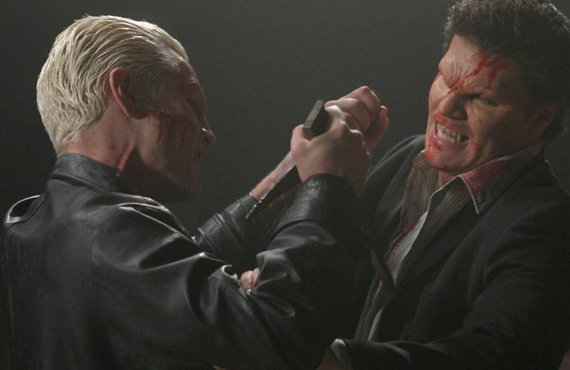
"Destiny" (Season 5, episode 8): This episode has it all: one of the last appearances of Juliet Landau's iconic Drusilla, an incredibly epic Spike/Angel brawl, and Mountain Dew in a chalice! When Spike once again becomes corporeal (a word most of us learned from Season 7 of Buffy) , "the wheel of destiny starts to spin off its axis" and wacky things start happening. Things like Mercedes McNab's Harmony bleeding from the eyes. This episode explores Angel and Spike's historically combative relationship, so of course Buffy is mentioned a whole lot. But the more we see of them clashing, the more this becomes about who they are and their respective roads to redemption.
Angel (David Boreanaz)
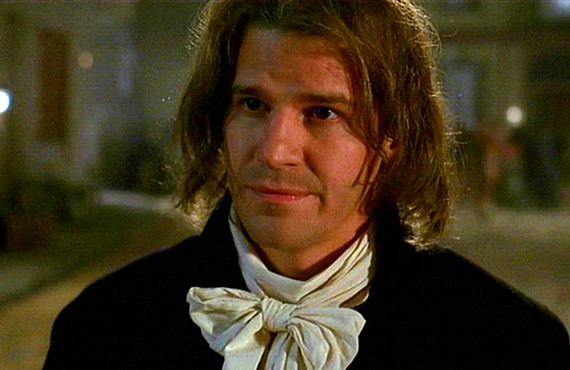
"Heartthrob" (Season 3, episode 1): This episode is all about grief — specifically Angel's grief over the loss of his love, Buffy Summers. It's an important episode that interweaves current Angel with his past, by having him unknowingly kill a former vamp friend. Julie Benz's Darla is there in flashbacks, creating a real Ghost of Christmas Past, Present, and Future (because hey, Cordelia) situation for Angel. It shows his depth as a character without being too melodramatic.
Cordelia Chase (Charisma Carpenter)
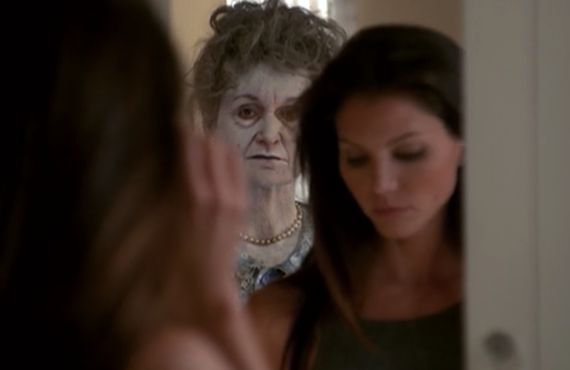
"Rm w/a Vu" (Season 1, episode 5): We're closing with Cordelia and not the title character of the show because she's the best, okay?? The episode finds Cordelia finally finding the perfect apartment in L.A. but, of course, there's a catch: it's haunted. Season 1 Cordelia had been beaten down by the experience of existing in Los Angeles without a lot of money and with no full-time job, so it was understandable how damsel-y she was played up to this point. That's exactly what makes the episode so perfect. We get a beaten down Cordelia finally channeling her inner mean girl to defeat her apartment's ghost by delivering the iconic lines, "I'm not a sniveling whiny little Cry-Buffy. I'm the nastiest girl in Sunnydale history. I take crap from no one." THIS was the girl we (and Angel) would fall in love with.
Angel lives on in our forums. Join the conversation.
Ian Carlos Crawford is a freelance writer, host of the podcast Slayerfest 98, and someone with way too many feelings. Follow him on Twitter at @ianxcarlos.
TOPICS: Angel, Buffy the Vampire Slayer, Alexis Denisof, Amy Acker, Charisma Carpenter, David Boreanaz, James Marsters
- Ted Lasso's Rupert and Buffy the Vampire Slayer's Giles Are the Same Person
- A Fully Annotated Guide to the Classic WB "Oh What a Night" Promo
- Sarah Michelle Gellar admits there were conflicts -- including with Alyson Hannigan -- on the Buffy set, blames Joss Whedon's leadership
- Julia Garner's Anna Delvey Accent Is Insane, But It's Not the First of Its Kind